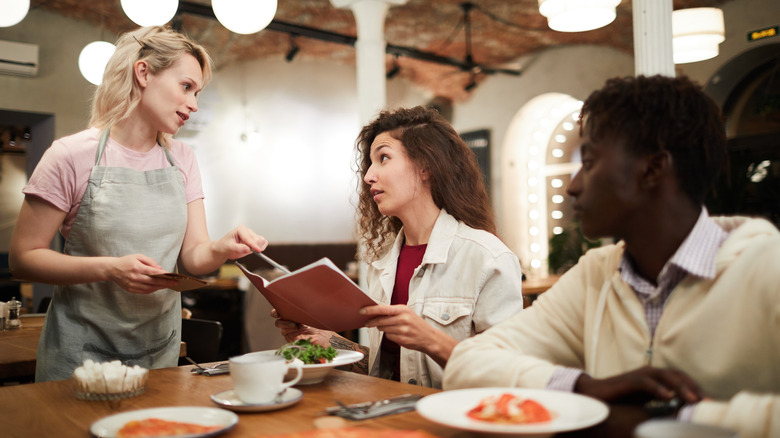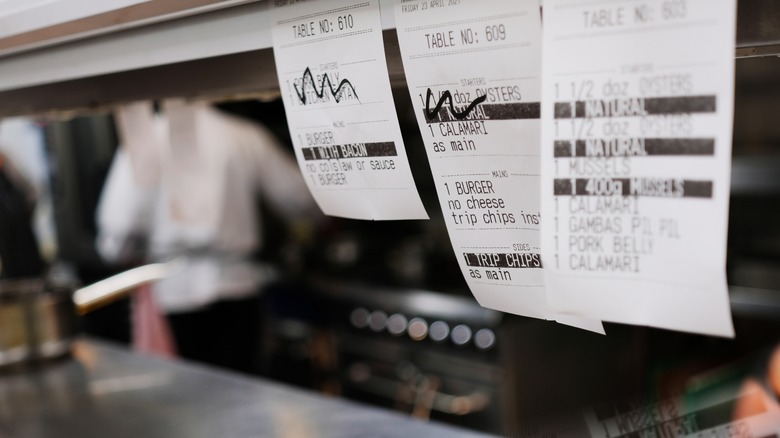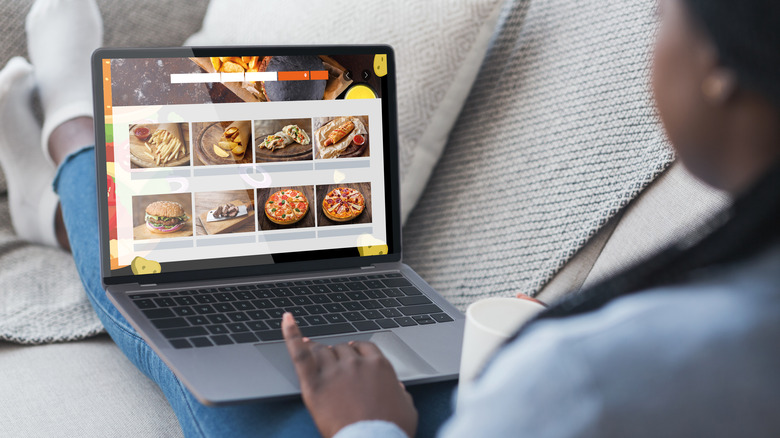Why Excessive Meal Modification Is Bad Etiquette
Anyone who's dined out at a restaurant has seen this interaction. While taking an order, a server is sent back and forth to the kitchen by a customer who has a dozen questions and wants to make changes to their desired menu item. Watching this from another table is a test of patience, and that doesn't even compare to the frustrations of the server and kitchen staff having to deal with this back and forth. For them, these types of customers are even more annoying than those who linger after getting the check.
The reason this behavior is bad restaurant etiquette is because it monopolizes the time of one busy server, breaking the flow of the kitchen staff behind the scenes, and creating a ripple effect throughout the restaurant. The server's other tables are neglected, their food is delivered late, and the perceived ineffectiveness of the server may affect their tips from these neglected tables. Since many servers rely on their tips for pay, excessive meal modifications can have a very real impact on their paystubs.
Meal modifications also make the chef's job more difficult
Diners rarely get a peek into a restaurant kitchen, so they don't know how hectic it can be — especially during dinner rush. Many professional kitchens run a tight ship to combat the chaos and make sure they are turning out great food. Getting heavily modified tickets can really throw a stick into the spokes of this well-oiled machine and have the same kind of ripple effect for the cooks as it does for the servers.
Simple modifications are usually fine; asking for no tomatoes on a salad is a pretty simple change that won't trip up any cook. And many restaurants are willing to make small changes for dietary restrictions if they are set up to accommodate them. Chefs are, after all, in the service industry, and they want diners to enjoy the food they have prepared. Even seemingly a small change can throw a wrench in the preparation of a dish, setting everything back. Multiple changes? Forget about it.
But asking for big modifications that inherently change a dish begs the question: Why order it in the first place? A restaurant's menu is not just slapped together; it is constructed by a chef who believes that each dish is the best and tastiest presentation they have to offer. Asking for big modifications not only causes problems for the cooks in the kitchen, it also shows a little lack of respect for what a chef has created.
Research a restaurant and its menu before you choose it
These days, it's so easy to avoid being that kind of customer who has a list of demands. Nearly all restaurants list their menus online, so take the time to do some research before walking in the door. The websites often mention whether or not a restaurant can accommodate different dietary needs, or if they are willing to make changes at all; some restaurants have a policy of no modifications. If there's nothing on the menu that seems appetizing without some big modifications, it is perhaps better to choose a different restaurant.
It's also important to be cognizant of the restaurant's atmosphere after being seated. If attendance is light, it's less likely that small modifications are going to cause a problem for the staff. But if the restaurant is packed and has a long wait, it's better to be courteous and just order right from the menu; the staff would certainly be appreciative of that. There are a lot of archaic restaurant etiquette rules that should be rewritten, but avoiding excessive meal modifications is one that should hold fast.



